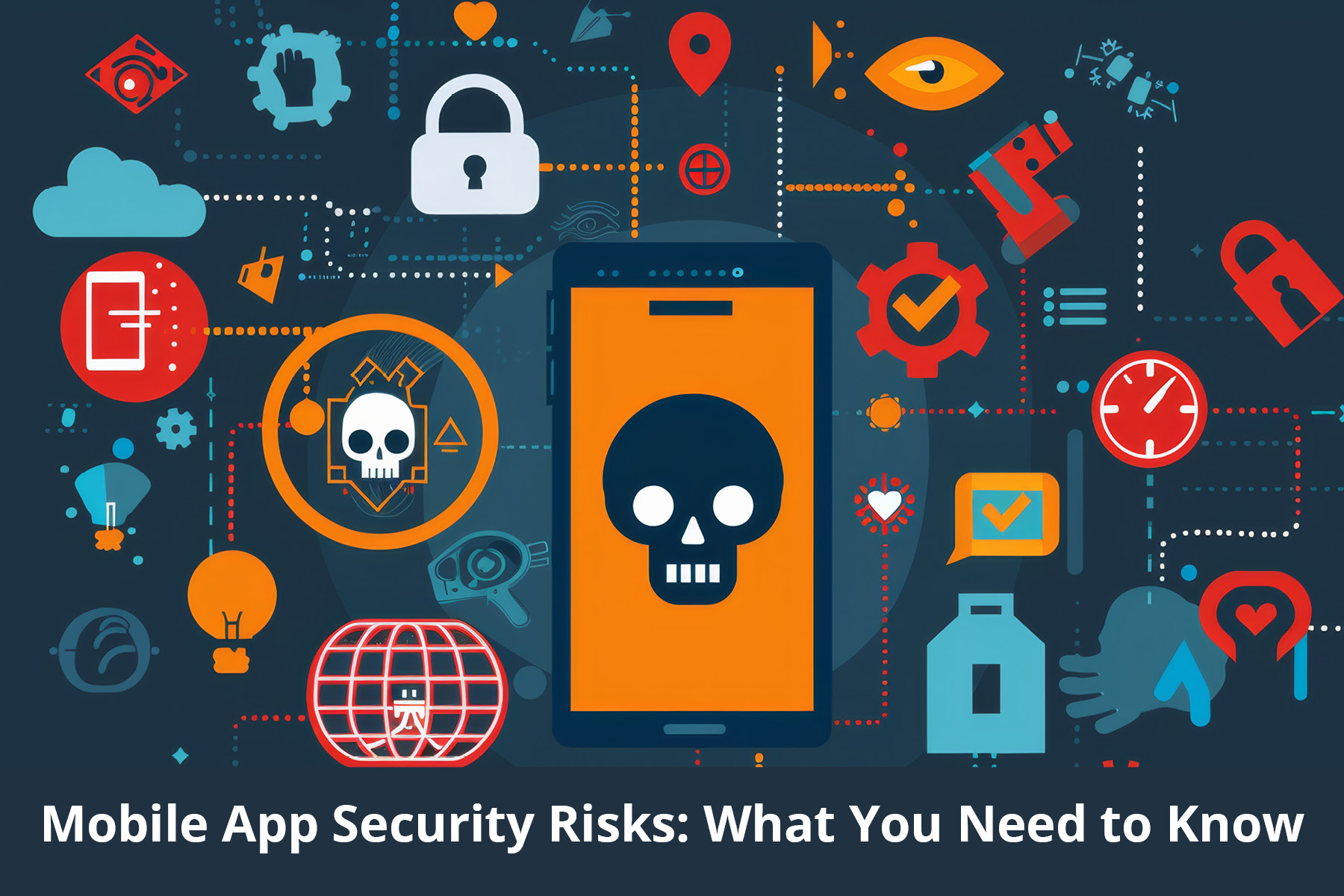Mobile apps are essential tools for business. From managing tasks to communicating with clients, these apps offer convenience at your fingertips. However, they also come with their own set of security risks. Understanding these risks is crucial for protecting your business. Let’s dive into some common mobile app security risks and how to mitigate them.
1. Poor API Protection: APIs (Application Programming Interfaces) are the bridges that allow different software systems to communicate. When APIs are not properly protected, they become vulnerable to attacks. Hackers can exploit these weaknesses to gain unauthorized access to your business data.
- Only download apps from reputable sources like the Apple App Store or Google Play Store.
- Review the permissions an app is requesting before installation. If an app asks for access to information it doesn’t need, consider it a red flag.
- Regularly update your apps to ensure you have the latest security patches.
2. Weak Server-Side Controls: Mobile apps often interact with server-side components, such as databases and backend services. If these server-side controls are weak or improperly configured, they can be an easy target for cybercriminals. This can lead to data breaches and other security incidents.
- Use Two-Factor Authentication (2FA of MFA) for apps that support it, adding an extra layer of security.
- Use complex and unique passwords for different apps. Consider using a password manager to keep track of them.
- Regularly check your account activity for any unauthorized access and report suspicious activities immediately.
3. Unsafe Sensitive Data Storage: Storing sensitive data, such as passwords, personal information, and financial details, on mobile devices can be risky. If this data is not securely stored, it can be easily accessed by unauthorized parties.
- Avoid storing sensitive information like passwords or personal identification numbers (PINs) on your device.
- If you must store sensitive data, use apps that provide encryption to protect your information.
- Enable remote wipe features on your device, which allow you to erase data if your phone is lost or stolen.
4. Insecure Communication Channels: Mobile apps often rely on communication channels, such as Wi-Fi and cellular networks, to transmit data. If these channels are not secure, your data can be intercepted by hackers.
- When accessing sensitive information over public Wi-Fi, use a virtual private network (VPN) to encrypt your data.
- Ensure the apps you use employ secure communication protocols like HTTPS. Look for a padlock icon in the browser or app indicating a secure connection.
- Turn off auto-connect features for Wi-Fi and Bluetooth to avoid connecting to potentially malicious networks.
5. Lack of Regular Updates: Mobile app security is an ongoing process. Without regular updates, your apps can become vulnerable to new security threats. Hackers are constantly finding new ways to exploit weaknesses, so staying current is essential.
- Turn on automatic updates for your apps to ensure you always have the latest security patches.
- Periodically check for and install updates for your apps and operating system.
- Remove apps you no longer use to minimize potential security risks.
By taking these proactive steps, you can significantly reduce your risk of falling victim to mobile app security threats. Staying informed and vigilant is key to protecting your personal and business data. Remember, security is a shared responsibility between app developers and users. Stay safe and secure in the digital world!




